President’s Welcome
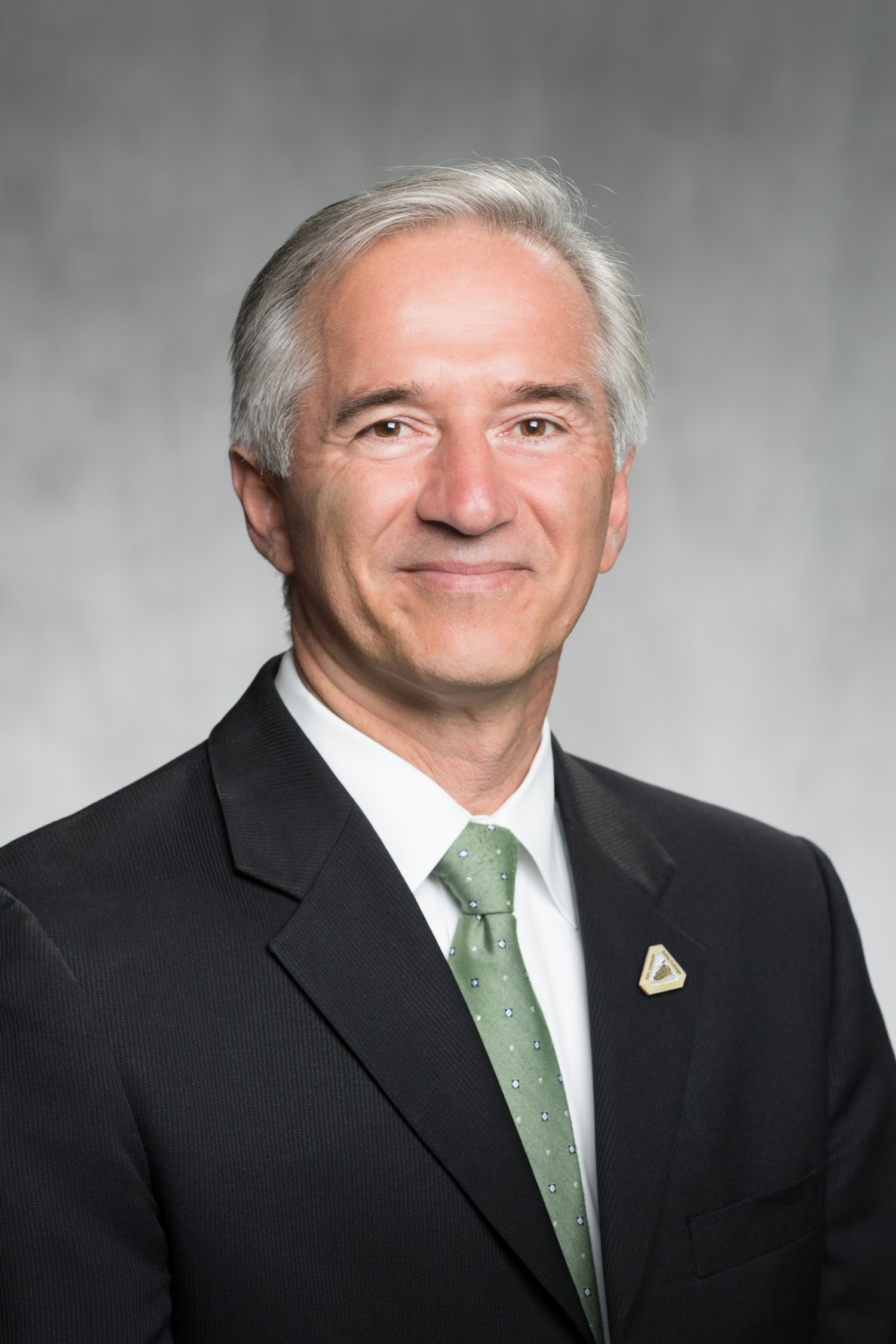
Dear students,
WELCOME to Delta College! We are delighted that you are here! You have chosen to be at one of the best community colleges in the state and we have data to prove it:
- WalletHub national survey recognized Delta College as the #1 community college in California and #4 in the nation.
- Delta graduates earned 3,043 awards including 2,556 associate degrees and 487 certificates.
- Over 870 students transferred to a California public university and another 416 students transferred to a private or out-of-state university.
- 45% of our students are the first member of their family to attend college.
- Delta’s 20 sports teams consistently place in the top 10 among the other 115 community colleges in California.
YOU BELONG HERE and we will do everything we can to provide the guidance and support that you need to achieve your educational goals. We start the academic year 2021-2022 still observing the COVID-19 pandemic guidelines and with projections for challenging economic times ahead. I want you to know that in challenging economic times, continuing your education and ensuring that you have adequate financial aid to support your education are the best things you can do. Individuals with higher education and/or specialized training are much more likely to keep their jobs and obtain new jobs in challenging economic times.
Delta is your college, so get engaged! We know that students who are involved in college life have more fun and do better academically. Whether it is online or in person, get engaged athletically, socially, politically, and academically. Delta has 19 student clubs and you can always get a group of friends together to start your own club. Just make sure you have some fun! It is not all about books and studying!
We also want to make sure that you have the financial support that you need to succeed in college:
- Nearly two-thirds of Delta students receive the California College Promise Grant (free tuition).
- Delta awards more than $300,000 in scholarships each year to students.
- About 16,000 students received some form of financial aid last year.
- Delta awarded $12.2 million CARES dollars in direct awards to students during the pandemic and continues to provide laptops, WiFi devices, and other support services to students.
Please know that success in college is not determined by your IQ, but rather by your persistence, dedication, and hard work. If you have any questions or need help, please stop by the Delta Connect Center or just ask anyone that works here!
Sincerely,
Dr. Omid Pourzanjani
Superintendent/President
Board of Trustees
|

Ms. C. Jennet Stebbins
South Stockton
Area 1
|
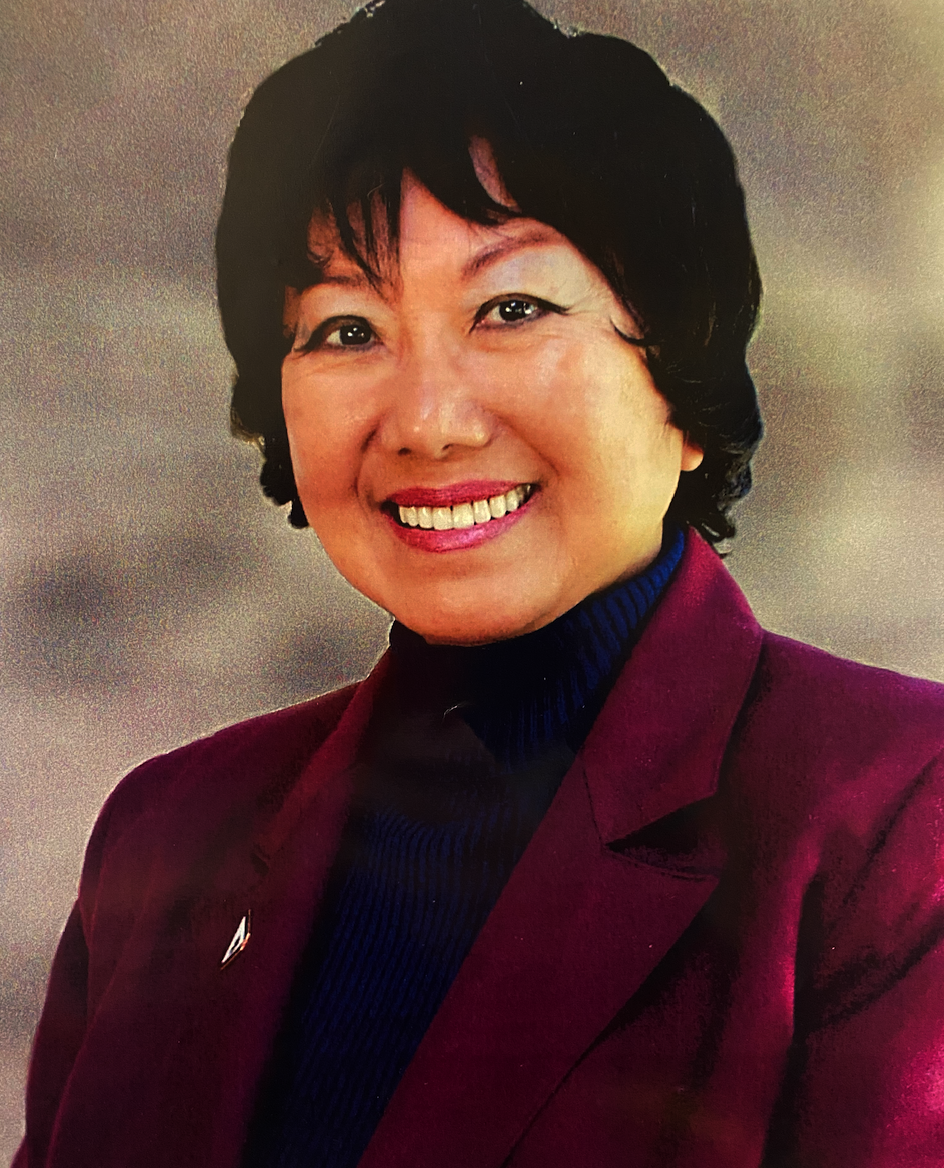
Dr. Elizabeth Blanchard
Central Stockton
Area 2
|
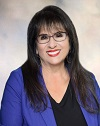
Ms. Janet Rivera
North Stockton
Area 3
|

Dr. Charles Jennings
Lodi-Galt
Area 4
|
|
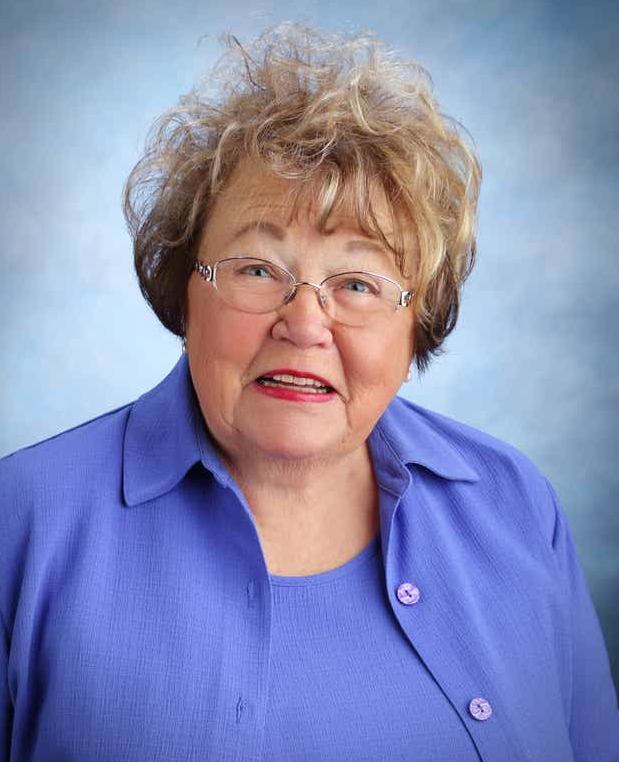
Ms. Kathleen Garcia
East San Joaquin and Calaveras County
Area 5
|
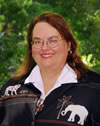
Dr. Teresa Brown
Tracy
Area 6
|

Catherine Mathis, M.D.
Manteca/Escalon
Area 7
|
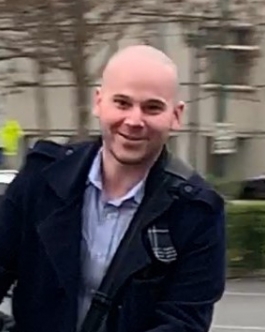
Mr. Lance Arthur Elliott Jr.
Student Trustee
|
Administration
Omid Pourzanjani, Ed.D.
Superintendent/President
Lisa Aguilera Lawrenson, Ph.D.
Assistant Superintendent/Vice President of Instruction and Planning
Lonita Cordova, Ph.D.
Assistant Superintendent/Vice President of Student Services
Amanda Preston-Nelson, Ed.D.
Vice President of Administrative Services
DeAnna Solina, Esq.
Vice President of Human Resources and Risk Management
Mission Statement
San Joaquin Delta Community College District is committed to student and community success.
We serve the needs of our diverse students and community through our excellent post-secondary degree, certificate, career and technical, and transfer programs, and our outstanding support services. We enhance the quality of our programs and services through our dedication to a continuous improvement process, a guided pathways framework, and a commitment to equity for all. We ensure that all of our programs and services promote intellectual autonomy and critical thinking in safe, inclusive, supportive, and affirming learning environments.
We strengthen the economic development of our community by collaborating with educational institutions, business and industry, government, and economic development agencies to provide a skilled, effective, and diverse workforce for our community. (BP 1200, 5/7/19)
Vision Statements
Student Achievement
Guided by a commitment to achieving equitable outcomes, San Joaquin Delta Community College District develops and maintains an institutional structure that supports the timely completion of students’ academic and professional goals leading to attainment of certificates, degrees, employment, or transfer to four-year institutions.
Equity & Diversity
San Joaquin Delta Community College District promotes a climate of respect and authentic engagement. We are culturally responsive to the needs of our diverse student body. We strive to increase and sustain equitable outcomes for all students. We recruit and retain quality employees who are reflective of our students and the community we serve, in addition to providing all personnel with equity and diversity training.
Community Engagement
San Joaquin Delta Community College District fosters a high level of community engagement by implementing comprehensive outreach efforts, cultivating existing relationships, and developing new partnerships with local and regional residents, industry, government, education, and nonprofit organizations.
Fiscal Responsibility
San Joaquin Delta Community College District maintains a transparent and sustainable budget process that prioritizes ensuring equitable opportunities and outcomes as well as while being responsive to the evolving needs of all our students. We maintain strong budget reserves to ensure that District goals are achieved through flexibility and accountability.
Planning
San Joaquin Delta Community College District engages in a strategic planning process that considers local and regional collaboration, and distance education. We revisit our planning process at regular intervals. Our objectives are measurable, aim to increase student enrollment, improve retention, completion, and transfer. Our planning efforts are inclusive of all employees, regardless of role. (BP 1201, 5/7/19)
Equity Guiding Principles
Overview
At San Joaquin Delta College, equity is about providing all students with the support they need to be successful, especially those who are most vulnerable. “We”, represents members of the Delta College community who embody the “District” and “College.” These Equity Guiding Principles provide a strengthened foundation to guide the efforts in cultivating a campus culture of inclusion and success. “We” embrace the following fundamental principles in our approach to equity:
Guiding Principles
| Inclusion |
We believe an inclusive culture means all are invited and welcomed to the conversation. We will solicit and honor all campus perspectives, regardless of rank or title. We listen openly, engage respectfully, and communicate authentically and regularly. |
| Inquiry |
We understand that some policies and practices disproportionately impact certain groups of students. We analyze data according to race, gender, religion, low-income, LGBTQ+, legal status, ability, current and formerly incarcerated, foster youth, veteran status, homeless status, and speakers of languages other than English. Our data informed actions strive to prioritize supporting the groups that need it most by removing policies and practices that serve as barriers to their success. |
| Social Justice |
We recognize that society unfairly distributes wealth, opportunity, and privilege. We believe higher education should be a civil right and see it as a means to create a more just world. |
| Student-Centered |
Being student-centered means that we will put the students’ education first, acknowledging student voice as central to the learning experience. We will design our programs and offerings with this in mind. We strive to listen to their needs, are culturally responsive, and prioritize a shift in our approach to meet them where they are and take them to where they want to go. |
| Transparency |
We aspire to share our data, goals, and outcomes in clearly worded, easily accessible formats so that all can easily understand. By doing so, we try to hold ourselves accountable for serving all groups effectively with an emphasis on those that need it most. |
| Flexibility |
We will challenge the status quo by disrupting and questioning our assumptions. We will be flexible in how we design the student learning experience so that we encourage innovation and creativity. We will support risk taking and the opportunity to learn from our failures. |
Land Acknowledgement
We acknowledge that San Joaquin Delta College serves students and the community on the unceded ancestral homeland of indigenous peoples, including the Yokuts [yoh-kuts], Plains Mi-Wuk [mee-wuck], Patwin [PAT-win], and Nisenan [nish-n-non]. This land remains inseparable from its aboriginal stewards. As guests, we recognize that we benefit from living and working on their traditional homeland, and we wish to pay our respects by acknowledging the ancestors, elders and relatives of the Yokuts [yoh-kuts], Plains Mi-Wuk [mee-wuck], Patwin [PAT-win], and Nisenan, including by affirming their sovereign rights as First Peoples. We remain grateful for the rich culture, languages, contributions, and heritage of the First Nation peoples who lived here and loved here, who raised their families here, who cared for land and life here, who are buried in many marked and unmarked places here, and who remain here despite acts of genocide, assimilation, and forced removal. Let us honor them, this land, and all life in our thoughts, words, and actions in this place.
Accreditation
San Joaquin Delta College is accredited by the Accrediting Commission for Community and Junior Colleges of the Western Association of Schools and Colleges, 10 Commercial Blvd., Novato, CA. 94949, (415) 506-0234, an institutional accrediting body recognized by the Commission on Recognition of Postsecondary Accreditation and the U.S. Department of Education. The District has two educational centers recognized by the Commission to offer 50% or more of a degree or certificate program: the Stockton Campus at 5151 Pacific Avenue, Stockton, CA 95207 and the South Campus at Mountain House, 2073 South Central Parkway, Mountain House, CA 95391.
The College’s programs are fully accredited or approved by professional organizations and/or national and state agencies including:
- Accrediting Commission for Education in Nursing
- California Commission on Peace Officers Standards and Training
- California State Board of Registered Nursing
- California State Board of Vocational Nursing and Psychiatric Technicians
- California State Department of Education
- California State University
- National Automotive Technician’s Education Foundation
- University of California
Student Learning Outcomes
San Joaquin Delta College Philosophy on Student Learning Outcomes
The purpose of Student Learning Outcomes and Assessment (SLOA) is to improve student learning. It is driven by San Joaquin Delta College’s institutional mission and is a professional responsibility of faculty, staff, managers, and administrators. Outcomes and assessments are primarily developed and implemented by faculty and student service professionals. SLOA requires the institution to provide clear and measurable outcomes, authentic learning experiences, and assessment of student learning that includes the systematic collection, collaborative analysis and interpretation, and use of assessment information to understand and improve teaching and learning.
Student Learning Outcomes for all programs and courses are published on the college website: www.deltacollege.edu/department/student-learning-outcomes-and-assessment.
Institutional Learning Outcomes
San Joaquin Delta College is committed to providing students with the knowledge and skills necessary to succeed as productive members of society. Degree and certificate programs are designed to foster the development of students who demonstrate and apply the principles listed below.
- HUMAN CULTURE AND THE PHYSICAL WORLD
- Awareness and Appreciation of Social Institutions
- Understand the growth and evolution of social, political, economic, religious and cultural systems.
- Recognize the essential nature of the arts in affecting thriving cultures.
- Appreciate the primary significance of cultural diversity as a factor in the formation and success of society.
- Environmental Responsibility
- Understand how to use resources responsibly.
- Understand why human population growth is an important environmental issue.
- Understand how natural processes and human activities contribute to climate change.
- DISCIPLINE, CAREER, AND TECHNICAL COMPETENCE
- Discipline-specific knowledge
1. Develop knowledge of a discipline, set of related disciplines, or a career/technical field.
- Application and analysis of knowledge
1. Apply, analyze, synthesize, and evaluate concepts, principles, and practices in a variety of real-world settings.
- QUANTITATIVE, SCIENTIFIC, AND COMMUNICATION SKILLS
- Quantitative Competency
- Apply mathematical concepts and principles in a variety of real-world contexts.
- Demonstrate knowledge of fundamentals of 21st century economic, business, and personal financial concepts, principles, and processes and effectively apply it in real-world settings.
- Scientific Competency
1. Demonstrate knowledge of fundamental scientific principles, concepts, and processes (e.g., scientific method), and effectively apply it in real-world settings.
- Communication Competency
- Demonstrate effective and appropriate methods of communication (e.g., reading, writing, listening, speaking, signing, performing and visual arts, and utilizing electronic media).
- PERSONAL AND SOCIAL DEVELOPMENT
Development and Demonstration of Responsibility: Personal; Civic and Social; Interpersonal and Intercultural
- Personal Responsibility
- Set and achieve personal, educational, and life goals.
- Manage the college experience to achieve academic and personal success.
- Prioritize family, work, and leisure effectively.
- Develop economic self-sufficiency.
- Demonstrate responsibility for one’s own health, safety, and well-being.
- Civic and Social Responsibility
- Demonstrate a commitment to public life through engagement in organizations.
- Exercise leadership and appropriate behavior as a member of groups.
- Practice ethical behavior through appropriate choices.
- Interpersonal and Intercultural Responsibility
- Act with civility and respect for people of diverse cultures, socioeconomic and political backgrounds, sexual orientations, disabilities, ideas, and viewpoints.
- Engage in meaningful relationships with peers, instructors, and others.
- Demonstrate cooperation and collaboration with others in academic, artistic, athletic, and other settings.
- LIFELONG LEARNING
- Information and Technological Competency
1. Find, evaluate, ethically use, and appropriately cite information in a variety of formats (e.g., print, multimedia, and electronic resources).
- Intellectual Competency
1. Think, reason, and reflect critically; generate questions and explore ideas; and analyze and synthesize information.
- Engagement in Lifelong Learning
- Update knowledge and skills to maintain currency in a discipline(s) or a career/technical field.
- Engage in learning for intellectual stimulation and recreational activities.
Delta College Foundation
San Joaquin Delta College is in the business of changing lives, creating opportunities, and contributing to the economic health and well-being of the region. The college depends on private support for scholarships and assistance in purchasing equipment and supplies for its programs. The Delta College Foundation has evolved through collaborative efforts of business, academic, and scholastic interests. It raises funds for student scholarships and solicits business and industry support for academic programs. The Foundation is a tax-exempt, non-profit corporation under IRS Code 501(c)3, and develops planned giving opportunities. It accepts gifts including cash, real estate, jewelry, art, stocks, bonds, mutual funds, and life insurance policies. For more information, visit the Delta College Foundation website.
College Overview
San Joaquin Delta College (SJDC) is a single college district and the only community college district in San Joaquin County. Located at the northern end of the Central Valley, the College is 46 miles south of Sacramento and 85 miles east of San Francisco. SJDC operates on approximately 2,300 square miles and serves parts of five counties, including San Joaquin, Calaveras, Sacramento, Alameda, and Solano. The City of Stockton is the most populated city in San Joaquin County and the thirteenth largest city in California (US Census 2010). Stockton is one of the most diverse cities in the nation [niche.com/US CENSUS], with its population of approximately 40 percent Hispanic/Latinx, 20 percent white, 20 percent Asian, 12 percent Black/African American, and 8 percent Pacific Islander, Native American, or other races. SJDC is recognized as a Hispanic Serving Institution (HSI) and an Asian American Pacific Islander Serving Institution (AANAPISI).
Established in 1935, SJDC began as Stockton Junior College, a private lower-division program of College of the Pacific, with an initial enrollment of 73 students. The goal was to admit students who were not fully qualified for regular admission to Pacific, and the experiment was a success. In 1948, Stockton Junior College became Stockton College with a total student body of just under 2,000. At that time, all freshman and sophomore classes were moved to a 43-acre site south of Pacific’s campus. The physical separation of Stockton College and College of the Pacific was followed in 1951 by the recommencement of lower-division class offerings at Pacific. During the 1950s, as the educational needs of the region became paramount, Stockton College expanded its vocational programs and became San Joaquin Delta College.
Legally separated from Stockton Unified School District in 1963, the College encompassed virtually all of San Joaquin County and portions of three other counties. A new main campus was soon established about two miles north of the College’s original home. By 1976 the College was serving an area of 2,300 square miles, larger than the states of Delaware or Rhode Island. With the passage of time came a need to build new facilities and upgrade existing ones, and voters made this possible by approving a 250 million dollar bond initiative in 2004. The bond led to high-profile improvements including the renovation of Goleman Library, construction of the Lawrence and Alma DeRicco Student Services Building, and the development of the new state-of-the-art Science and Math Building.
Work in other areas has continued since 2014, with the renovation of outdoor athletic facilities, the rededication of the Delta College Child Development Center (originally established in 1994), and expansion of the Shima Building to house diesel and heavy equipment shops. The College plans to continue this growth to meet the needs of the students and the community at large. SJDC now serves over 23,000 students annually.
The College offers 26 associate degrees for transfer (ADTs), 70 associate degrees (AA/AS), 120 certificates, and various transfer pathways. Part of the College’s mission is to “strengthen the economic development of our community.” To that end, the College provides programs that support local industry labor market demand (e.g., health care and social assistance). SJDC collaborates with fourteen community colleges, workforce, and economic development organizations through the Central Valley/Mother Lode Regional Consortium in order to support regional economic growth. By further developing its training and educational programs, SJDC strives to meet the needs of regional business and industries.
Overall, the College is proud to be an economic driver in the northern San Joaquin Valley and Delta, a region that launched California into world prominence and continues to serve the nation and the state in both agriculture and industry. In 2019, recognizing both the quality and value of the College, personal finance website WalletHub ranked SJDC as the top community college in California and the fourth best in the nation [Press Release].
The College has three established locations:
|
Main Campus
5151 Pacific Avenue
Stockton, CA 95207
|
South Campus at Mountain House
2073 S. Central Parkway
Mountain House, CA 95391
|
Manteca Center
5298 Brunswick Road
Manteca, CA 95336
|
|